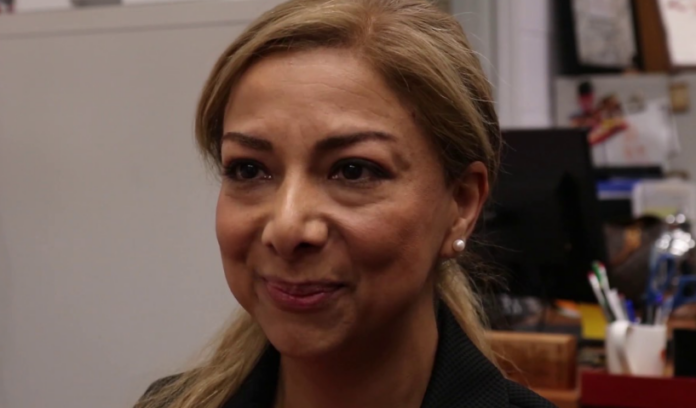Richmond, VA – March 18, 2025 – A new bill in the Virginia House of Delegates, HB2056, introduced by Delegate Atoosa Reaser (D-27), is stirring controversy by proposing to shift the authority for setting early voting schedules at satellite locations from local Electoral Boards to City Councils and Boards of Supervisors. Critics warn that this change could create a significant conflict of interest, especially for Loudoun County’s Board of Supervisors (BOS), while raising questions about the balance of power in election administration.
What HB2056 Proposes
Currently, local Electoral Boards in Virginia—bipartisan bodies appointed by circuit court judges—determine the days and hours for early voting at satellite locations. These additional voting sites are set up to make early voting more convenient, particularly in areas with large populations or limited access to main polling stations. HB2056 would transfer this decision-making power to local governing bodies, such as City Councils and Boards of Supervisors, which are composed of elected officials often aligned with political parties.
Conflict of Interest Concerns in Loudoun County
The bill has sparked particular alarm in Loudoun County, a politically competitive region where the Board of Supervisors holds significant influence. Opponents argue that giving the BOS—whose members run in partisan elections—control over early voting schedules could allow them to tailor voting access in ways that benefit their own political interests or those of their party.
“This sets up a clear conflict of interest,” said Sarah Thompson, an election integrity advocate in Loudoun County. “If supervisors can decide when and where people vote early, they might choose times and locations that favor their supporters and disadvantage others. It’s a risk we can’t ignore in a battleground area like Loudoun.”
For example, a supervisor facing a tight re-election race could potentially limit early voting hours in neighborhoods known to support opposing candidates, a move that critics say could suppress turnout and undermine electoral fairness.
Loudoun County’s recent history underscores these concerns. In 2024, the BOS clashed with the local Electoral Board over proposals to expand early voting days, with the Board citing limited resources as a barrier. Under HB2056, such decisions would fall squarely to the BOS, eliminating the Electoral Board’s role as a check on political influence.
Shifting Authority in Election Administration
HB2056 also changes the dynamics of who oversees key election decisions. While the bill’s supporters frame it as empowering local elected officials, it effectively strips authority from the appointed Electoral Boards, which are designed to be impartial. The bill shifts power from these nonpartisan appointees to elected bodies like the BOS, raising concerns about politicizing election logistics.
“Electoral Boards exist to keep election administration neutral,” said David Ramirez, a political science professor at the University of Virginia. “Handing this power to elected officials, who have a stake in election outcomes, could erode that impartiality.”
Opposition and Broader Implications
Critics, see the bill as a step toward partisan manipulation. “Politicians shouldn’t control the rules of their own elections,” said Mark Levine, a local political observer. “In a state where early voting is increasingly popular, this could lead to inconsistencies and accusations of bias across localities.”
Early voting has surged in Virginia in recent years, with satellite locations playing a vital role in reducing Election Day congestion and accommodating voters with busy schedules or limited transportation. Any change to how these sites operate could have statewide ripple effects, particularly in competitive regions like Loudoun County.
What’s Next for HB2056
As of March 18, 2025, HB2056 is under review By Governor Youngkin. The bill faces strong opposition from those who fear it jeopardizes the integrity of elections, especially in places like Loudoun where political stakes are high. If passed, it could reshape how early voting is managed across the Commonwealth, prompting broader debates about local control versus electoral fairness.
To ask Governor Youngkin to veto this bill
Send an email to glenn.youngkin@governor.virginia.gov and constituent.services@governor.virginia.gov
OR simply call 804 786-2211 and leave a message. Provide your name and address (at least town) so the Governor knows who you are.
NEWSLETTER SIGNUP
Subscribe to our newsletter! Get updates on all the latest news in Virginia.


